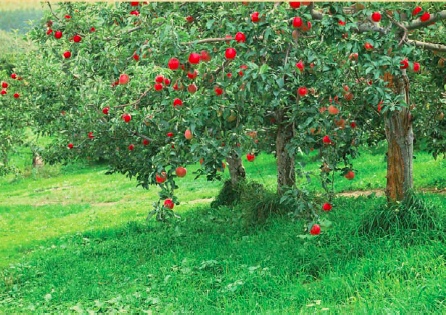13-16 сентября 2011 года. Экспоцентр на Красной Пресне, Москва, выставка World Food Moscow. Павильон 2.2
Американский фруктовый павильон каждый год открывается на выставке World Food Moscow. Координация павильона осуществляется под патронажем Министерства сельского хозяйства США и ряда некоммерческих фруктовых ассоциаций США.
В павильоне вы сможете получить информацию об индустрии прозводства яблок, груш и винограда в США, контактную информацию производителей, характеристику сортов и сезонности, прогнозы на урожай 2011-12, программах продвижения фруктов США и вариантах сотрудничества с ассоциациями. Мы приглашаем участников российского фруктового рынка в Американский фруктовый павильон!
Участники:
Вашингтонская яблочная комиссия
Некоммерческая ассоциация объединяет фермеров, выращивающих яблоки в штате Вашингтон. Штат производит до 60% всех яблок в США, что составляет более 100 миллионов бушелей (коробка 20 килограмм). Сезон сбора яблок штата Вашингтон, начинается в середине августа и заканчивается в начале ноября. Поставки яблок штата Вашингтон по многим сортам осуществляются круглый год.
Основные культивируемые сорта: Red Delicious, Gala, Fuji, Granny Smith, Golden Delicious. Также популярны Cripps Pink, HoneyCrisp, Braeburn, Cameo. США – один из пяти ведущих поставщиков яблок в мире.
Совет по экспорту яблок США
Некоммерческая ассоциация, объединяющая производителей яблок из 11 штатов (Нью-Йорк, Мичиган, Калифорния, Пенсильвания, Вирджиния, Новая Англия), где производится около 40% яблок США.
Основные культивируемые сорта: McIntosh, Empire, Crispin, Gala, Honeycrisp, Red Delicious, Golden Delicious, Fuji, Cripps Pink, Granny Smith, Braeburn and Red Rome.
Бюро по грушам США
Некоммерческая ассоциация, которая объединяет производителей груш в штатах Северо-Запада США: Вашингтон и Орегон. На международном рынке регион входит в тройку ведущих производителей. Сезон сбора урожая начинается в августе, а в сентябре созревают популярные зимние сорта. Благодаря современным технологиям хранения, поставки зимних сортов груш продолжаются до следующего лета.
Основные культивируемые сорта: Green Anjou, Red Anjou, Bartlett, Red Bartlett, Bosc, Comice, Forelle, Starkrimson.
Калифорнийская комиссия столового винограда
Членами ассоциации являются более 500 производителей столового калифорнийского винограда. Сезон сбора калифорнийского столового винограда начинается в мае.
Благодаря самым современным технологиям хранения различные сорта калифорнийского винограда, с косточками и без, в продаже до января. В Калифорнии производится более 70 сортов винограда трех цветов.
Контактная информация
Для организации встреч на выставке World Food Moscow обращайтесь, пожалуйста, к нашим сотрудникам:
Западная Россия: Ксения Евдокимова, +7(812) 702-7151, ksenia@crispconsulting.agency
Восточная Россия: Катерина Акуленко, katerina@newmark.ru
